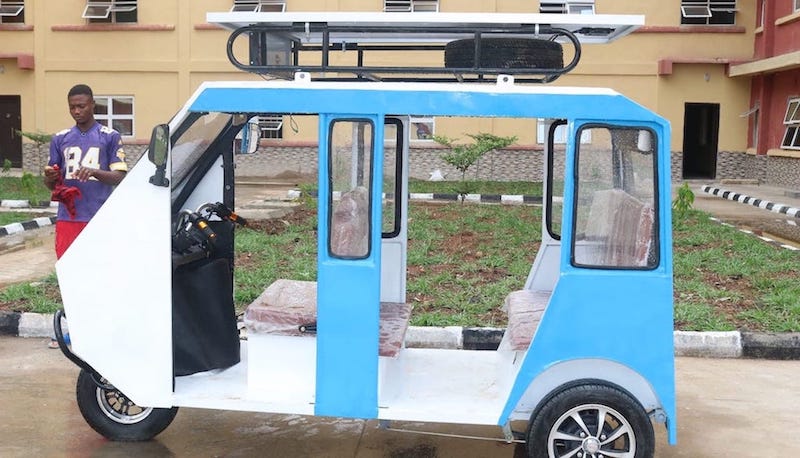The Federal Government has signed a Memorandum of Understanding (MoU) with Chinese company Mutual Commitment Company Limited to assemble electric tricycles and establish a renewable energy training center. This groundbreaking agreement, facilitated by the Rural Electrification Agency (REA), was formalized during a ceremony in Beijing on the eve of the African-China Cooperation Summit.
The event, attended by Nigeria’s Minister of Power, Adebayo Adelabu, and REA Managing Director, Mr. Abba Aliyu, marks a significant step towards achieving Nigeria’s ambitious -enewable energy goals. Minister Adelabu hailed the MoU as a historic moment, emphasizing its alignment with President Bola Tinubu’s Renewed Hope Agenda, which prioritizes expanding energy access and creating jobs for Nigeria’s growing population.
Adelabu highlighted the importance of decentralized energy solutions, noting that nearly 40% of Nigerians currently lack access to electricity. He underscored the government’s commitment to adopting a distributed power model that will bring reliable energy to rural areas, universities, and health institutions, reducing the strain on the national grid and accelerating the country’s transition to cleaner, sustainable energy sources.
Read Also: Oilwatch International canvases rejection of environmental racism, climate imperialism
With countries like Tunisia, Morocco, Egypt, and South Africa achieving near-universal electrification, Adelabu stressed that Nigeria has the resources to follow suit. The MoU with MCC is expected to boost the country’s electrification rate, drive economic growth, and create jobs, particularly for the nation’s youth.
REA boss Mr. Abba Aliyu echoed these sentiments, stating that the initiative will not only fulfill the presidential mandate to build local capacity but also contribute to GDP growth through enhanced socio-economic activities. MCC’s Vice Chairman, Yan Zhezhu, expressed appreciation for Nigeria’s commitment to energy development, highlighting ongoing projects like the 12-megawatt and 3-megawatt power plants in Maiduguri and Kaduna, respectively.






